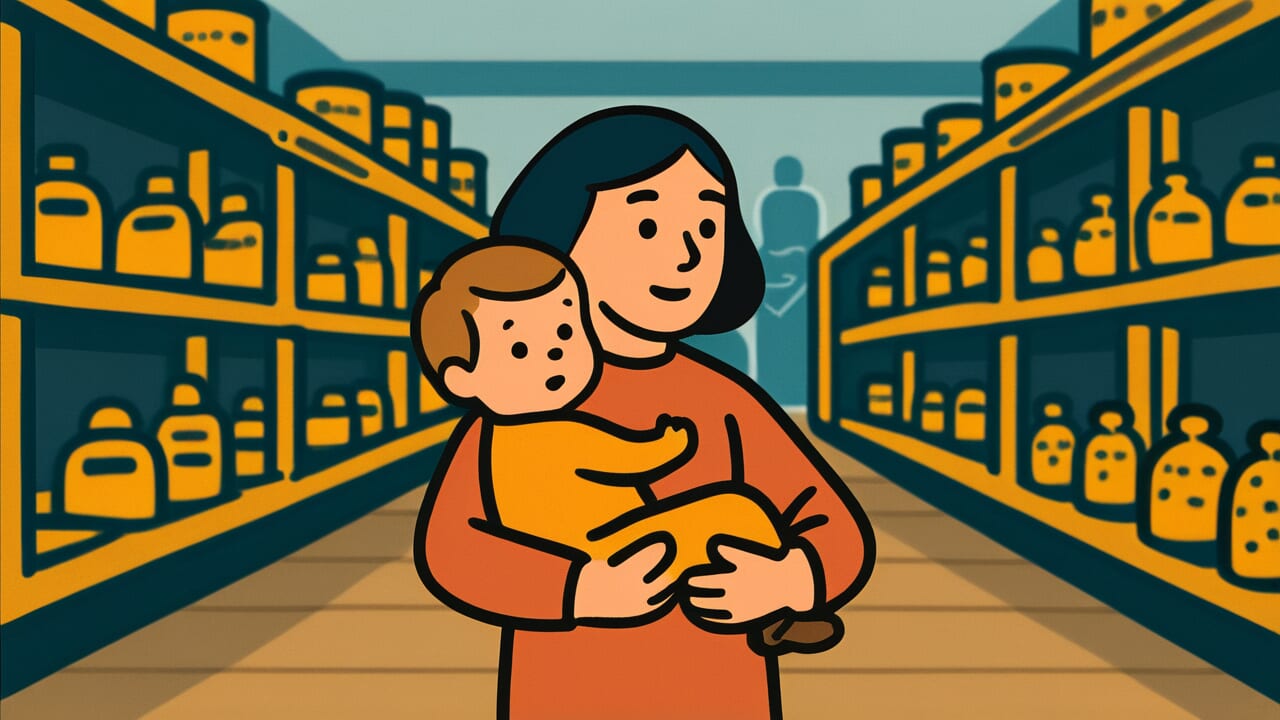How to Read “Children are treasures more than a thousand storehouses”
Sen no kura yori ko wa takara
Meaning of “Children are treasures more than a thousand storehouses”
This proverb means that no amount of wealth can match the value of children.
Even if you had enough riches to fill a thousand storehouses, it would never equal the worth of a single child.
You use this proverb when you want to express that family bonds and children matter far more than material wealth.
Possessions can be lost and cannot follow you after death. But children are living proof of your existence, hope for the future, and irreplaceable beings.
Even today, this proverb reminds us what truly matters when we sacrifice family time while chasing career success or money.
It teaches a universal truth: the most valuable things in life are human connections and love that money cannot buy.
Origin and Etymology
The exact literary origin of this proverb is unknown. However, its structure reflects values from Japanese agricultural society.
The phrase “a thousand storehouses” symbolizes enormous wealth. In ancient Japan, storing grain like rice in storehouses was proof of prosperity.
One storehouse alone represented considerable wealth, so a thousand meant unimaginable riches. This exaggeration emphasizes that no amount of material abundance can compare.
“Children are treasures” is a universal value found in many cultures, not just Japan.
Having descendants meant family continuity, and in agricultural societies, children were important as labor. But this proverb goes beyond practical concerns through its choice of the word “treasure.”
A treasure is something priceless that cannot be measured in money.
This proverb contrasts material and spiritual wealth. It expresses parental love and the sanctity of life by stating that no accumulated fortune can match a child’s value.
This message has been passed down through generations.
Usage Examples
- After my child was born, I truly understood the meaning of “Children are treasures more than a thousand storehouses”
- No matter how successful my business became, I realized nothing is more important than family, just as “Children are treasures more than a thousand storehouses” says
Universal Wisdom
This proverb has endured through time because it perfectly captures the conflict between two human desires.
One is the desire for material wealth. People seek security and safety by accumulating possessions. This is a natural urge rooted in survival instinct.
The other is the desire to pass your life to the next generation. This too is a fundamental biological wish.
What’s interesting is that this proverb compares the two and declares a winner.
Both should be important human needs, yet our ancestors clearly stated “children are superior.” Why?
Because humans seek meaning in life beyond mere survival. Wealth enriches your own life, but children live into a future beyond you.
You can own possessions, but children are beings with independent personalities. In other words, children teach parents about “love for something beyond themselves.”
This proverb expresses humanity’s deep realization that true wealth lies not in owning but in loving.
This is an essential truth about human existence that never fades, even after thousands of years.
When AI Hears This
The human brain evaluates gains and losses asymmetrically.
Behavioral economist Kahneman’s experiments proved that losing 10,000 yen feels about 2.5 times more painful than gaining 10,000 yen feels good.
Our brains are extremely sensitive to “what we lose” rather than “what we gain.”
Quantifying this proverb reveals something fascinating. When weighing the pain of losing enormous wealth like a thousand storehouses against losing a child, people feel the latter overwhelmingly more strongly.
Applying prospect theory’s 2.5x coefficient, a child’s existence would be worth over 400 times a thousand storehouses. But actual human perception far exceeds this calculation.
This is because a child is not merely an asset but a “completely irreversible loss” that can never be recovered once gone.
More noteworthy is that this proverb implicitly compares not “the joy of gaining a thousand storehouses” but “the pain of losing a thousand storehouses.”
Wealth fluctuates, but a child’s existence is binary—present or absent. The human brain instinctively understands this irreplaceability and activates loss aversion bias to the maximum.
This proverb verbalizes the very value judgment system humanity acquired through evolution.
Lessons for Today
This proverb teaches modern people not to lose sight of life’s priorities.
Contemporary society values visible results and quantifiable success. Annual income, savings, career titles. These certainly matter, but are you postponing time with truly important people while chasing them?
For those with children, this proverb delivers a direct message. No matter how busy you are, time spent with children cannot be recovered.
Today’s moment will never come again.
But this proverb’s lesson isn’t only for parents. Try reading “children” as “irreplaceable people.”
Family, friends, romantic partners, precious companions. People who enrich your life in ways money cannot buy.
When looking back at life’s end, few people think “I should have worked more to increase my wealth.”
Rather, they think “I should have spent more time with people I loved.” This proverb is a life compass that helps you realize this truth now.



Comments